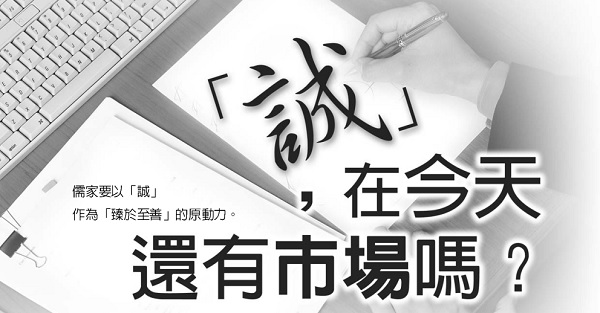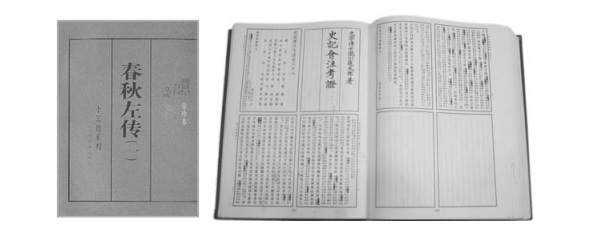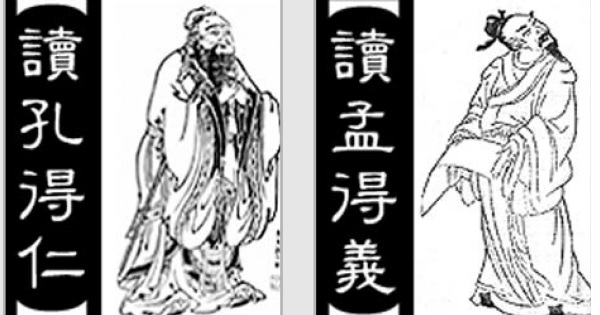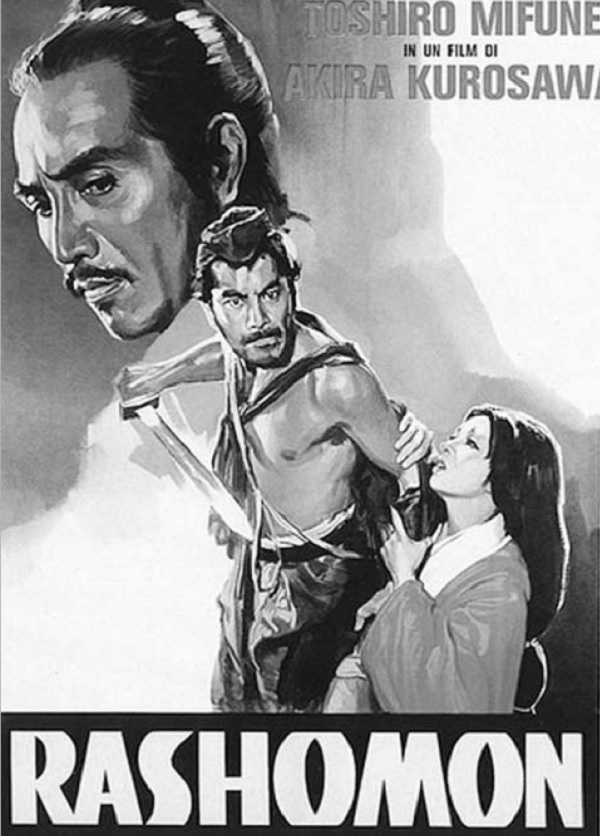"Sincerity", is there still a market today?

Confucianism should use "sincerity" as the driving force for "achieving perfection".
However, if "sincerity" can really become the force for human beings to improve their morality, why has the social morality of China's past dynasties been getting worse and worse?
Integrity, the simplest standard?
In ordinary people's perception, "telling a little lie" is no big deal. People will inevitably make up "a bunch of lies" very smoothly or without thinking. Jesus said:"If you say yes, say yes, and if you say no, no; if you say more, it is from the evil one." (Matthew 5:37)This sentence is easy to understand, but few people pay attention to it, especially the last sentence, which is too serious; this instruction is not taken seriously at all.
Human lying techniques have "progressed" from generation to generation: from selective lying to comprehensive lying; from individual lying to collective lying. From the time when you would blush when you told a lie (discovery of conscience), to today when you lie without changing your face; from organizational lying to lying as a whole country, various lying mechanisms have been constructed.In today's world, people have completely subverted their inherent morality, and even regard lying as a "new morality". Not lying has become "immoral"; Bad money drives out good money, creating today's "Age of Lies" and trapping all mankind into the historical common cause of lies!
The last book of the Bible, Revelation, talks about man’s final tragic ending:“But the cowardly, the unbelieving, the abominable, murderers, sexually immoral, sorcerers, idolaters, and all liars—these will have their place in the lake of fire that burns with brimstone; this is the second time. death” (Revelation 21:8)It's surprising to read. What everyone originally considered to be a harmless "little sin" - lying, turned out to be a serious crime, and the total number of sins was enough to cause people to perish - to be condemned to eternal death in the lake of fire and sulfur. Is it really that serious to tell a lie?
How many lies are there in human history?
There are two famous history books in China. One is "Spring and Autumn" compiled by Confucius, which is based on "History of Lu". It covers twelve periods and lasts for 242 years. Because the world was in decline at that time, there were many heresies and atrocities, ministers killed kings, and sons killed fathers, so Confucius was afraid and committed it. This is a history book that comments on the supreme ruler. Because of the great righteousness of the Spring and Autumn Period, it should at least be free of lies. The other is the "Historical Records" written by Ma Qian of the Taishi Company of the Han Dynasty, with a total of 130 chapters. It is also a masterpiece of historical facts written in a straight line. Although Sima Qian was a historian, his style was outstanding, his materials were rigorous, and he was not affected by the ruling forces. "Spring and Autumn" and "Historical Records" are two rare and authentic classics in Chinese history.
However, when the kings of the past dynasties were in power, they tried their best to influence the historians, concealed the evil and promoted the good, distorted the truth, and caused the history books to be untrue. Only when dynasties change, will the truth of history have a chance to see the light of day. However, much of history has long been turned into ashes, and the truth has disappeared forever. Therefore, it is difficult to judge how much truth and how many lies there are in history (including official history and unofficial history).
Many contemporary politicians, due to unresolved grievances and grievances, most of them do not let go of the history of the previous generation and try every means to falsify and rewrite it. Even the photos that can be used as evidence were changed and translocated to meet the political needs of the rulers. Only a generation of history would not interfere. In this way, after many generations of tampering, can the historical truth be found again? Unless cross-referenced with historical materials from many different sources, it is difficult to determine the authenticity.It turns out that what people think of as "small sins" has evolved into a long-standing crime due to frequent, repeated, easy, and accomplices. In the end, it has become a heinous "big crime"!

▲"Spring and Autumn" and "Historical Records" are two rare and authentic classics in Chinese history books. However, the plight of misinformation due to political interference in history is still unavoidable.
People’s contradictory orientation towards “sincerity”
In fact, people are still very inclined to be honest; although people will lie when necessary or unnecessary, they always hope that others will be honest with them. Once you discover that someone else has lied and been deceived, you will angrily accuse the other person loudly: "You lied!" You are so confident that you will never think that you have lied to others.
People sometimes lie because they are "forced by circumstances and have no choice but to do so." For example, Abraham lied to Pharaoh and called his wife Sarai his sister to avoid trouble (see Genesis 12:10-20). But most lies are motivated by malice: one national leader publicly lied more than a hundred times. Although these lies were later exposed, he was very proud and thought that he "should" lie; another "president" ” He is known for lying, but he flaunts his “sincerity” and makes the world a laughing stock.
According to the world's courts, those who are tried are required to be honest and those who appear in court are required to swear an oath to tell the truth, but courts are also places where lies are everywhere. Whether you are a plaintiff, defendant or witness, you must first consider whether what you say is beneficial to you and put honesty aside. The truth will be revealed only if the evidence is irrefutable and cannot be concealed.
Practicing lawyers are more likely to become "professional liars". They ignore the authenticity of their clients and will use all possible methods to find out relevant legal provisions and defend themselves in a position that is favorable to their clients. They will never consider it first. Just or not. Sometimes the verdict of a case is considered unfair by most people, but because no evidence can be found and the testimony of the defendant or witness is untrue, there is nothing they can do. When a judge asks a prisoner to "recruit the truth", how many prisoners can tell the whole story? I am afraid that only in front of the great white throne of doomsday, when man's transgressions are inescapable, can he honestly confess!
Frankness is to impose strict demands on others, and the requester himself is the biggest liar.Since there is no integrity left in the world, and when people are engaging in deception, wouldn't it be easier to just let "integrity" disappear from the dictionary?
no. Because when people lie, they also "expect honesty" and always hope that others will treat them honestly. The government, the largest group of lies in the world, most hopes that people will treat each other honestly and will do everything possible to make people loyal.
Yes, "sincerity" still has its market today, and this market is still very popular, just like atheists desperately anti-religion, but deep down they need religion most.
Confucianism is based on sincerity
Chinese Confucian scholarship emphasizes learning about nature and man, and adapting to ancient and modern times. But the so-called heavenly beings are not as good as the first cause of the universe, nor have they reached the level of religion. They only stick to the human part. Confucius had a rigorous academic attitude and did not want to know what he didn't know, so he avoided talking about gods, saying only that he was "as sincere as gods" (Chapter 24 of "The Doctrine of the Mean"). Mencius also had a similar understanding of gods. He said, "Those who are holy but unknowable are called gods."
Therefore, Confucianism only focuses on the part of human nature that seeks knowledge, and has a yearning for heaven and gods, but keeps a respectful distance from them. As the "Book of Changes" says: "God comes with knowledge, and wisdom goes by hiding." If you think that God is unknown wisdom, you can only maintain a respectful distance and ignore it, and try your best to deal with the humanities and philosophy parts that you already know and have experience in. business. This situation is similar to the "unknown god" Paul saw on the altar when he traveled to Athens (see Acts 17:23). Although the time and place are different, the situation is similar.
"The Master said: See, my way is consistent." (Ren in "The Analects") Confucian scholarship is consistent, and the so-called one is sincerity.
"There are five great ways in the world, so those who practice them are three: king and minister, father and son, husband and wife, brothers and sisters, and friendship. The five are the great ways in the world. Knowledge, benevolence, and courage are the great virtues in the world. "Yes. So the one who practices it is one." ("The Doctrine of the Mean" Chapter 20) This "one" is sincerity.
"There are nine classics for the world, so those who practice them are one." ("The Doctrine of the Mean" Chapter 20) This "one" is also sincerity.
The "one" mentioned above all refers to "sincerity". "Sincerity" is the central thought and core value of Confucianism. The philosophy of Confucius and Mencius not only takes human beings as the subject, but also takes the morality of political ethics as the scope of its research. It combines all kinds of things into one. As Laozi said: "Studying increases day by day, and doing Tao leads to loss." Confucianism summarizes "Tao" as "Five Ways" summarizes "virtue" into "three virtues", and finally summarizes them into one word "sincerity", which is the so-called "the reason for doing it."
Although Confucian moral philosophy regards human beings as its main object and category, it still regards the way of heaven as its supreme yearning. Therefore, it is said: "Sincerity is the way of heaven; sincerity is the way of man." ("Mencius" Li Lou Shang)
According to Confucianism, "A sincere person chooses good and is stubborn" (Chapter 20 of "The Doctrine of the Mean"), which means that in order to achieve sincerity, one must choose the best, believe in it, and practice it. This thinking is very correct, but the best in the world cannot be achieved. There is only one (cf. Matthew 19:17), God. However, Confucianism abandons faith and focuses on human nature, so its development is limited to "self-understanding and sincerity, which is called nature, and self-understanding and sincerity, which is called teaching" (Chapter 21 of "The Doctrine of the Mean"). It is not surprising that Confucianism gave up the pursuit of God and surrendered to the teachings of human nature, thus embarking on a path of self-limitation.
In the process of pursuing the way of heaven, Confucians can find that the highest moral ultimate of human beings is "sincerity", and the plight of human beings is "not sincerity." This thinking should belong to the highest state of the general revelation given to humans by God. Unfortunately, we were unable to receive special revelation from God, so we naturally could not obtain salvation. We could only engage in the exploration of the truth with the remaining conscience and explore and search for traces of "sincerity" in human nature after the image originally given by God to humans was destroyed. .
In the process of exploring "sincerity", Confucianism brings human rationality to the extreme. There is a saying that "the known principles are exhausted and pursued to the extreme. As for the long time of exerting force, once it is suddenly understood, all things will The surface and the inside are all refined and rough, and the whole of my heart is of great use. "(Zhu Zi said) The so-called "pursuing to the extreme" means exhausting one's nature, and exhausting one's nature comes from sincerity. From this "sudden understanding" of understanding, one reaches sincerity, which interacts with each other, so that "sincerity makes it clear, and understanding makes it sincere" (Chapter 21 of "The Doctrine of the Mean").
Confucianism has been talking about "sincerity" for thousands of years. Is this "sincerity" outdated? Not outdated. Because "sincerity" is the most important problem in people's minds today that needs to be solved.

▲Confucius gave up the pursuit of God, surrendered to the teachings of human nature, and therefore embarked on a path of self-limitation, which is expected.
The chief representative of lies
Christ directly pointed out the originator of all lies in the world as Satan the devil. Since the first ancestor of mankind stumbled, he immediately told lies out of guilty conscience.
"You are of your father the devil, and you will do the lusts of your father. He was a murderer from the beginning and does not abide in the truth, for there is no truth in him. He lies of his own accord, for he is a liar , and the father of lies” (John 8:44).
Lies can be said to be the root of all sin and the gene that activates sin. Since the beginning of Adam, mankind has begun the history of lying. This kind of sin has increased gradually and progressively in human history, increasing rapidly in a hypergeometric series.
After a baby is born, even if he is placed and raised in a place free from sin and pollution, when he grows up to have self-awareness, he will automatically lie even if no one instigates him. This proves that lying is the root of human original sin. It is simply impossible for people to correct themselves by relying on their own cultivation. A verse learned from Zen Buddhism:"Bodhi is not a tree, nor is a mirror a stand. There is nothing in the first place, so where can it cause dust?"Although the realm is high, it should refer to the situation before a person commits a crime.
After a person commits a crime, his entire soul and personality are polluted. Since people are born in lies, they are all dust whether they are provoked or not. However, Confucianism can trace back to the original prototype of man when he was created, and found that man fell into trouble because he lost "sincerity." It is a major discovery that Confucians can have such introspection and awareness. However, the path from "investigating things and attaining knowledge" to "sincerity and integrity" is an unworkable path...
Christ returns "sincerity" to the world
The modern Japanese film master Akira Kurosawa once produced a classic film "Rashomon". The theme of the film points out: A fact can produce completely different conclusions when observed by multiple people from different angles. In the end, it is difficult to distinguish between true and false, and right and wrong are unclear. Therefore, the phrase "Rashomon" has become a classic. Every day in human society, various versions of "Rashomon" are staged. In fact, there is only one truth and it cannot be confused. But such a simple truth cannot be achieved by humans and will never be achieved.
The last Adam became flesh and was crucified and sacrificed on the cross in order to save mankind and return it to the prototype of God's original creation of man: that is, the state of "originally nothing (without lies)".
Throughout the life of Jesus Christ, he was fighting lies.The people in power in Judaism at that time, such as the priest group, the Pharisees and scribes and other cronies, as well as the high priest Caiaphas who later put Christ to death, were all representatives of liars. So the confrontation between Christ and these characters is the struggle between truth and liars.
Finally, when the high priest arrested Jesus and delivered Him to the governor Pilate, who had the power of life and death, he wanted to use the hands of the Roman rulers to send Jesus to the cross for execution. When questioned by Pilate, Jesus clearly stated in his answer:"You say that I am a king. For this I was born, and for this I have come into the world, to bear witness to the truth. Whoever is of the truth listens to my voice." (John 18:37b)
This is the last testimony left by Jesus Christ, explaining thatHis mission when he came to the world was to bear witness to the truth and to re-establish the kingdom of truth in this world of lies. And through death and resurrection, he will defeat this lying world ruled by Satan. Let those who believe in Him return to honest truth through the redemption given by the cross.
Jesus already declared:"I am the way, the truth, and the life; no one comes to the Father except through me." (John 14:6)Man must abandon this world of lies before he can return to the kingdom of truth. Through the power of the cross of the last Adam, the truth destroyed by Satan is re-established. Only by paying the price of the life of the Son of God can we cancel this false historical legacy controlled by Satan and return true "sincerity" to mankind.
This "perfect sincerity" is exactly the perfection that Chinese Confucians dream of. Confucianism and its followers have wasted thousands of years of cultivation, but the "sincerity" they yearn for is getting farther and farther away from people, like a distant flame, out of reach. The Bible has told us a clear answer: if a person wants to return to "sincerity," it can only be accomplished through "faith." It is useless to rely on one's own cultivation and merit. The simple instruction given by the Lord: "If you say yes, say yes, and if you say no, say no." People have been oscillating between yes and no for thousands of years...
In fact, it is not as difficult as imagined for people to return to "utter sincerity"; as long as they persist in a belief and grasp a key, they can return to their original sincerity, "so whoever does it is the same." But this "one" is not "sincerity", but "faith".Because after committing a crime, people have no "sincerity" in their hearts.One must first have "faith" before he can achieve "sincerity." Therefore, "There is one thing to do. What is one thing?" It is also faith. Those who believe repent and accept Christ as their Savior. (Refer to John 1:12, Romans 1:17)

▲The movie "Rashomon" points out the confusion of the world living in lies: a fact will produce completely different conclusions when observed by multiple people from different angles, and in the end it will be difficult to distinguish between true and false, and right from wrong.
To preach to the Chinese people, we must pay attention to Confucianism
Confucianism should use "sincerity" as the driving force for "achieving perfection". For thousands of years from the time of Confucius and Mencius to the present, monarchs of all dynasties and followers of Confucianism have made many efforts. However, if "sincerity" can really become the force for human beings to improve their morality, people should have already realized the ideal of world unity. However, since Confucius and Mencius, the Chinese society, dominated by Confucianism in all dynasties, has been deteriorating in morality. Compared with many ethnic groups in backward and civilized areas, the moral standards of the Chinese people today are far behind, and even worse. Why? Because the Chinese people are unable to reach the state of "sincerity".
It is truly commendable that Confucians can gain a glimpse into the realm of "sincerity" amid their moral yearning and longing. According to moral philosophers from all over the world, Confucian thinking is far ahead. Therefore, some people say that "Chinese people are God's second chosen people." Although the thinking of "sincerity" is not direct revelation, it should also be a more special revelation among general revelations. However, to truly achieve "sincerity", it is beyond human power and cannot be redeemed by the cross of Christ.
Confucianism condenses its ideal of yearning and pursuit into the word "sincerity" and projects its unknowable ideal as a god; using "sincerity" as the "kinetic energy" for all formations and operations in the universe (see Chen Lifu's "Four Books on the Road" 251 Page), is a moral philosophy of empathy. Confucianism takes "character, sincerity, sincerity, righteousness and self-cultivation" as its approach and strives to achieve "sincerity". For thousands of years, although the moral direction promoted by Confucianism is correct, it has achieved nothing. The reason is that people with original sin have no power to reach the peak of "sincerity".A strong man cannot lift himself up. Only when Jesus Christ became flesh and died on the cross to pay for man's original sin and original sin can man return to the original sincerity when God created man.
Today is a prosperous era for missionary work among Chinese people, and it is fashionable for all churches to conduct missionary work abroad. But while you are on mission, don’t forget: the largest number of people in the world are Chinese, and there are still more than one billion people who are still in darkness and long for salvation. And these more than one billion souls waiting to be saved all have a Confucian background. Maybe they have never read the scriptures of Confucius and Mencius, but the "soul" of Confucianism will still emerge unconsciously. They will inadvertently discover under certain circumstances that although they have not read the books of sages, they are still deeply influenced by the Confucian tradition.

▲The International Confucian Federation held the world's first global mass memorial event for Confucius around the time of Confucius' birthday on September 28, 2005, with the Confucius Temple in Qufu, Shandong as the main theme, and attracted international attention. However, the Confucian ideal of "achieving perfection" cannot be achieved due to human sinfulness. so,To evangelize the Chinese people, we must not ignore the potential influence of Confucianism.After the May Fourth Movement and the Cultural Revolution, Confucianism has become alive again in recent times. Domestic Confucian forums are spreading the thoughts of Confucius and Mencius, and the academic community has published a book about New Confucian scholars discussing the Analects of Confucius, which has sold millions of copies and is very popular. "Confucius Institutes" have also been promoted around the world, with nearly a hundred Confucian academic institutions established in dozens of countries. The academic thoughts of Confucius and Mencius have been successfully promoted to the whole world. At this time, can our church continue to ignore the influence of Confucianism when preaching to the Chinese people?
Author profile
Pastor Yin Ying is a literary worker who loves literature, nature and praising the Creator. He is also an editor, publisher and communication worker. He once served as corporate editor and president of church news weekly, producer and administrative director of radio and television programs, and pastored the church for more than 20 years. He is the author of many works such as "Return to the Pastoral", "The Bitter Cup and Feast of the Soul", "The Temptation of Stones", "The Footprints of Jesus", "Meditations under the Cross", etc.
